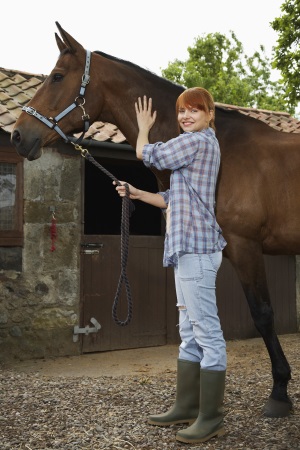 A homophone is a word that sounds the same as another word but has a different meaning.
A homophone is a word that sounds the same as another word but has a different meaning.
Note that some of the word pairs aren’t pure homophones, such as lose and loose. I include them because they’re close enough to get easily confused.
Lose/loose
“Lose” is a verb that means to be defeated.
He was afraid that he would lose the race, which would end his chances to win the championship.
“Loose” is an adjective that means not fitting correctly or not being exact.
His loose scrub top billowed.
The judges’ loose interpretation of the qualifications allowed Jim to compete in the race.
Principal/principle
This is an often confused homophone pair. “Principal” is an adjective that means primary or most important. It’s also a noun that is used to refer to the head of a school or a person of importance in a company.
The principal ingredient in his success was his determination.
Because of her disruptive behavior in class, Sally had to go see the principal.
“Principle” is a noun. It refers to a fundamental truth that an individual or group holds. It may determine behavior or subsidiary beliefs.
His principles would not allow him to cheat.
Reign/rein
The “Reign” can be either a verb or a noun. It refers to being in power.
The king reigns over the country until he dies or is deposed.
“Rein” can also be a verb or noun. As a noun, it usually refers to the narrow strip of leather attached to a horse’s bit. As a verb, it means to control, as in “rein in.”
 The rider held the horse’s reins.
The rider held the horse’s reins.
He used them to rein the horse in when it ran too fast.
I recall proofreading a newsletter for an attorney who referred to taking over the reins of power. One of the most confusing aspects of “reign” and “rein” occurs in phrases like “holding the reins of power.” Since to reign means to have power, people often write “the reigns of power.”
Site/Sight
These words can be used as either verbs or nouns, making them confusing homophone pairs.
As a verb, “site” means to locate or situate. As a noun, it refers to a location.
They sited the house on a hill that overlooked the valley.
The site of the house pleased the owners because of its view.
“Sight” means to see as a verb. As a noun, it means what one sees.
Anne sighted Lucy walking several hundred feet ahead.
We’d usually say, though, Anne saw Lucy walking several hundred feet ahead. It sounds better.
The sight of Lucy relieved Anne because she was lost on the mountain.
Stationary/stationery
“Stationary” is an adjective that means immobile.
Though he pushed the button, the elevator remained stationary.
“Stationery” is a noun referring to writing materials, especially paper of a good quality. We used to buy a lot of stationery, but alas, sending emails has changed all that.
She used the best stationery she had for her letter so that he would know she took her message seriously.
Do you know of any other homophones you’d like me to write about in this blog? I’d love to hear from you.
If you liked this post you’ll love 52 Writing Tips: Fast and Easy Ways to Polish Your Writing. Whether you’re a beginning writer, you want to polish your skills, or you need the determination and inspiration to finish a project, this book will help you. It covers a range of subjects from grammar explained simply, how to skillfully edit your work, essentials of blogging, and how to capture and keep a reader’s attention. 52 Writing Tips: Fast and Easy Ways to Polish Your Writing is the guide you’ve been waiting for.
The book includes several chapters on how to polish your writing skills and 3 on homophones!


 Pat Iyer is an editor, author, book coach and ghostwriter who helps individuals create books that encourages their expertise to shine and advances their businesses. She has written or edited 48 of her own books.
Pat Iyer is an editor, author, book coach and ghostwriter who helps individuals create books that encourages their expertise to shine and advances their businesses. She has written or edited 48 of her own books.